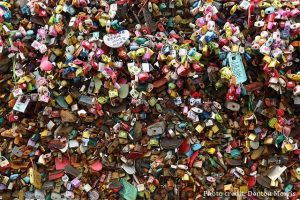Go Away With … Nelufar Hedayat

Nelufar Hedayat, 28, was just 6 years old when she and her family fled the Taliban and war-torn Afghanistan. Her experiences as a refugee and immigrant helped shape her desire to make a difference. While working for the BBC, she interviewed Malala Yousafzai for the TV documentary, “Shot for Going to School.” Hedayat’s current project is the Fusion docuseries “The Traffickers,” where she delves into subjects such as the illegal selling of human organs and sex.


